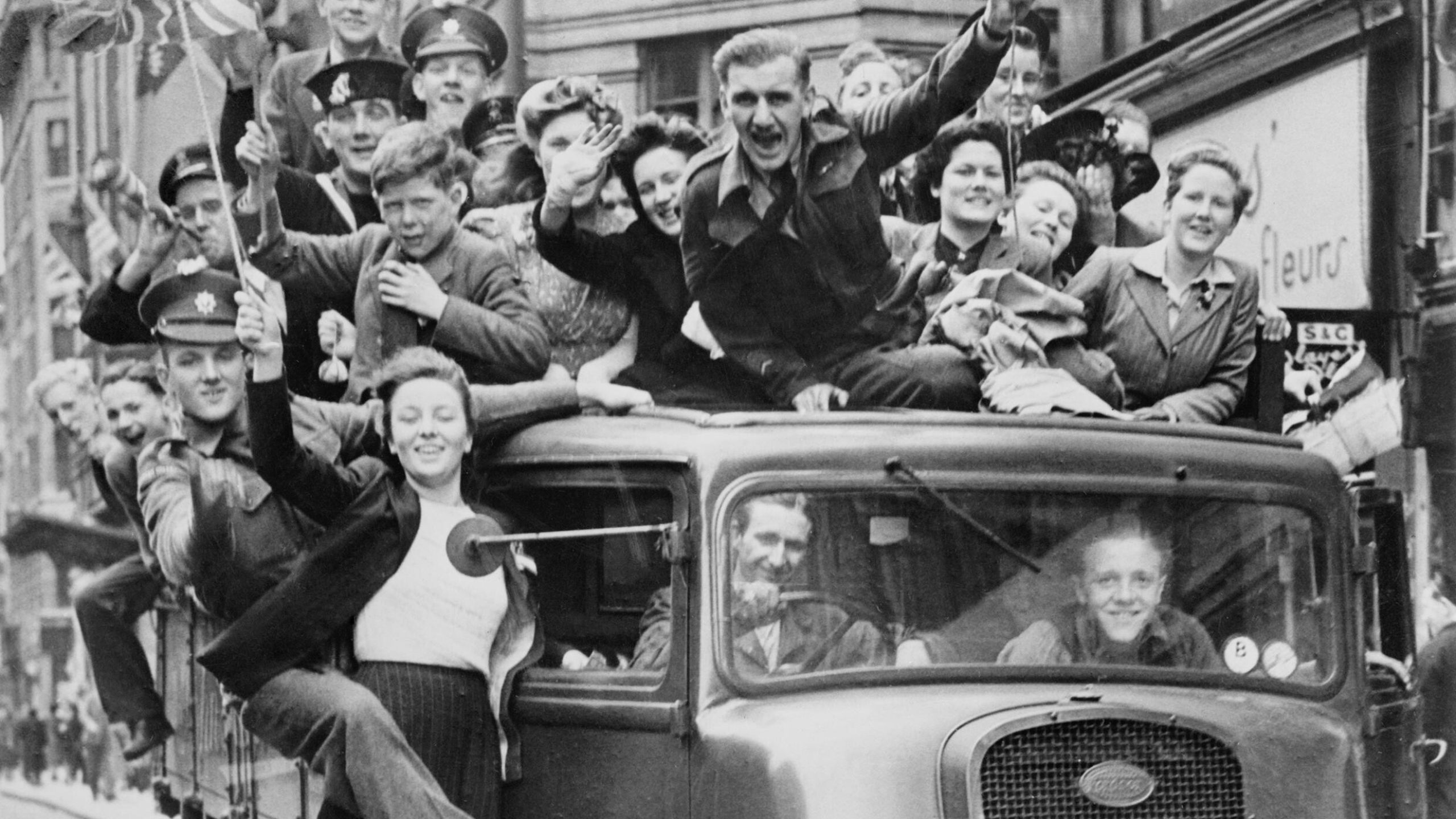On 8th May 1945, the world erupted in celebration as Nazi Germany’s surrender marked the end of World War II in Europe. VE Day was a moment of immense relief, joy, and reflection, as millions across Allied nations took to the streets to commemorate the hard-fought victory. Amid the celebrations, personal experiences captured the sheer joy and relief of the moment.
In London, crowds flooded Trafalgar Square and Buckingham Palace, cheering as King George VI and Prime Minister Winston Churchill appeared on the balcony.
In towns and cities throughout Europe, and across the Atlantic, parades and festivities brought people together in shared triumph. For soldiers returning home, it was a time of pride and reunion, while civilians, who had endured years of rationing and bombing raids, finally saw hope for the future.
The firsthand accounts remind us of the resilience and unity that made victory possible, celebrating the sacrifices and triumphs of those who lived through this momentous day.
Short but Special: Personal Memories & Family Stories of VE Day
Bob Putlock, USA
“On the morning of VE-Day my Aunt Kay gave my younger brother and me 2 small American flags and told us to go outside and sit on the curb and wave the flags all day. ( I was 6 and brother 4 ) This was in Maywood, New Jersey, USA. Aunt Kay was baby sitting while our Mother was in the hospital delivering my sister ( #4 of 7) . That memory was the first of several other patriotic memories that led me to become a USAF helicopter pilot, now a retired O-5.”
Edwina Logan
My mother Elizabeth ‘Betty’ Wren was a student nurse at St. Stephens Hospital, Chelsea and Westminster looking after war wounded soldiers for which she received the Defence medal. She was also celebrating her 21st birthday on VE day out on the streets of Chelsea with her best friend Margaret ‘Peggy’ Burroughs, who was also a nurse at the same hospital. Both of them joined the Queen Alexandra’s Imperial Military Nursing Service enjoying careers that took them all over the world.Harold Victor Rantor
I was born on 8th May 1945, so it will be my 80th this year. My middle name is Victor. This was agreed to by my Mother as the nurses looking after my Mum asked that she name me to celebrate VE Day. Victor, as my middle name, was agreed.
John Barton
On VE Day, I was eight and living in London with my parents and sister. We went as a family and stood by the railings outside Buckingham Palace to see King George VI and Queen Elizabeth on the balcony, with the Princesses Elizabeth and Margaret. They were joined by Prime Minister Churchill. Until a photograph in the VSC confirmed my childhood recollection, I had wondered if my memory had been enriched by imagination!
John HewettWe were a family of boys (aged 9 and 7) who lived through the war in North London apart from short evacuation to Sussex, Chesterfield and Seend Wiltshire. May 8th 1945, when Father returned from work we took the underground from Golders Green to Embankment. We just enjoyed being with the crowds knowing that we were safe. We walked towards Westminster. At some stage a car drove through the crowds with King and Queen and then did a swift turn and back another way. For us, Victory meant:
- No longer would air raid warnings mean going to the Morrison Shelter, which was a reinforced table in the dining room.
- No longer would Mother report that she had heard bombers flying over during the night for a raid on Germany.
- No longer could we stand and watch V2 flying over waiting for the engine to stop.
For us, as children, “the normal” was living through the war, now we could look forward to new experiences.
Michael Ellis
I was a 10 year old at primary school in 1945. The day before 8th May, everyone seemed to know that the war against Germany was about to end, and expected the announcement to be made that day. My parents said I needn’t go to school, but I was a keen type (some would say a swot!) and got on my bike (my first ‘two-wheeler’) and cycled off on a warm, sunny morning through a strangely quiet town to school. The door was closed and locked. After a little while, a couple of other lads arrived and we mooched about in the playground for half an hour or so, until Mr Broome arrived and told us to go home and come in the next day.
The following day was a normal school day, with no acknowledgment of the great event from our stern teachers.
Murray Schane
I was 5 years old when I read the huge headline in the newspaper, declaring the end of the war. My mother and grandmother were in tears and I, in simple sympathy, also began to weep. Then came their sighs of relief and radiant smiles. An indelible memory.
Roger Fendley
On the 8th May 1945, I was 11 years old and lived during the war in Kent so witnessed the Battle of Britain! On VE day my father took the family to see the King and Winston Churchill on the balcony at Buckingham Palace. The most memorable memory was the amazement at seeing street lights for the first time! Millions of people all very happy and several men climbing lamp posts!
Veronic Bellers
My husband, Timothy John Bellers (1932-2001), was twelve in May 1945. He lived in Seaton, Devon and before VE-Day he rode his trusty bicycle from Seaton to London to be at the celebrations outside Buckingham Palace. I think he stayed one night with his brother on the way and I do not know where he stayed in London – but he made it!As a boy in Seaton during the war Tim regularly joined members of the Home Guard to spot incoming German ‘planes. His sharp young eyesight was, I understand, a great help to the older men. Tim later joined the Gurkhas and served in the Malayan Emergency, later becoming a member of the Diplomatic Service. His service to his country is the reason why I am proud to be a member of the Victory Services Club.
Rosemary Yule
On 8th May 1945, my mother was working as an 18 year old switchboard operator/telephonist at the Covent Garden Telephone Exchange. She handled many military and government lines and travelled up and down throughout the bombings and blackouts.That day, after work, she decided not to go home, but to join the crowds at Buckingham Palace to see the King and Queen and Winston Churchill, and share the celebrations. Whenever I see the famous photos of the crowds, I imagine I’m looking at Mum. She had a terrible war, being bombed out of her home 4 times and losing her 19 year old brother at Anzio. The end must have come as a huge relief.
Jackie Young
Remembering VE Day:The rush down our lane to see – wonder of wonders – a double decker bus travelling slowly down the main road to Manchester, illuminated inside and out with what appeared to me to be a million coloured lights. A never to be forgotten sight for a seven year old!
Crowds in Central London
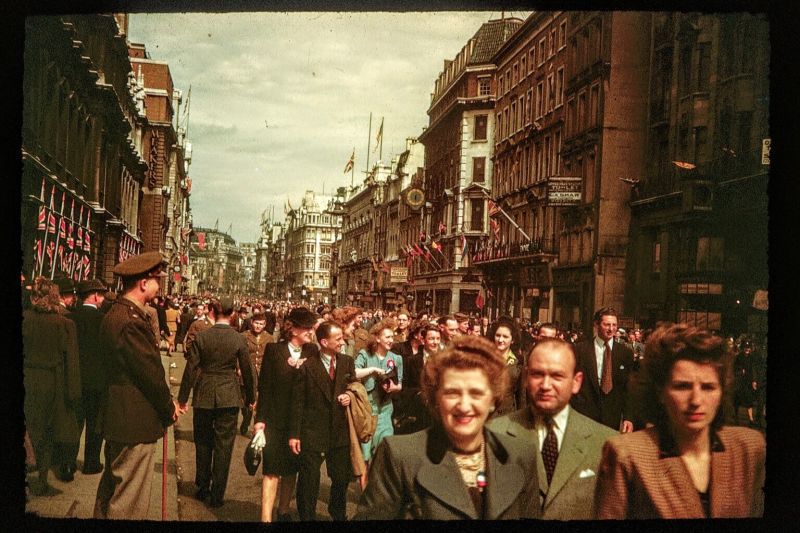

This photo was taken by Colonel Lloyd E. Jones, U.S. Army Air Force, on VE Day in London in 1945, in and around Piccadilly/Regent Street.
At the time, Colonel Jones was assigned to the HQ, Air Transport Command (European Division), which was located near Marble Arch. You can sense the general relief in the street that the war in Europe was finally over.
His son writes, “We must never forget all those, military and civilian, who sacrificed so much for victory.”
Thanks to his son, David L. Jones Colonel U.S. Army (Retired) for this photo
VE Day Party in Clitheroe


This is a photograph taken at a VE day party in Clitheroe, Lancashire. The father of Lisa Ardern, Walter Wood, who was born in 1939, is pictured second from the end on the left, his mum Ivy is also pictured (next to the lady with the apron in the centre with long hair).
Lisa’s grandfather, Lance-Corporal John Henry Wood, was in the Lancashire Loyals Army Regiment and it is believed he was in Burma around the time of VE Day.
Thanks to Lisa Ardern for these photos
Below are a couple of clippings with a photo of Lance-Corporal John Henry Wood, stating that he was home on leave (although not during VE day!). The other person highlighted Vincent Gornall, also from Clitheroe, who was Lisa Ardern’s great uncle, serving in the RAF.
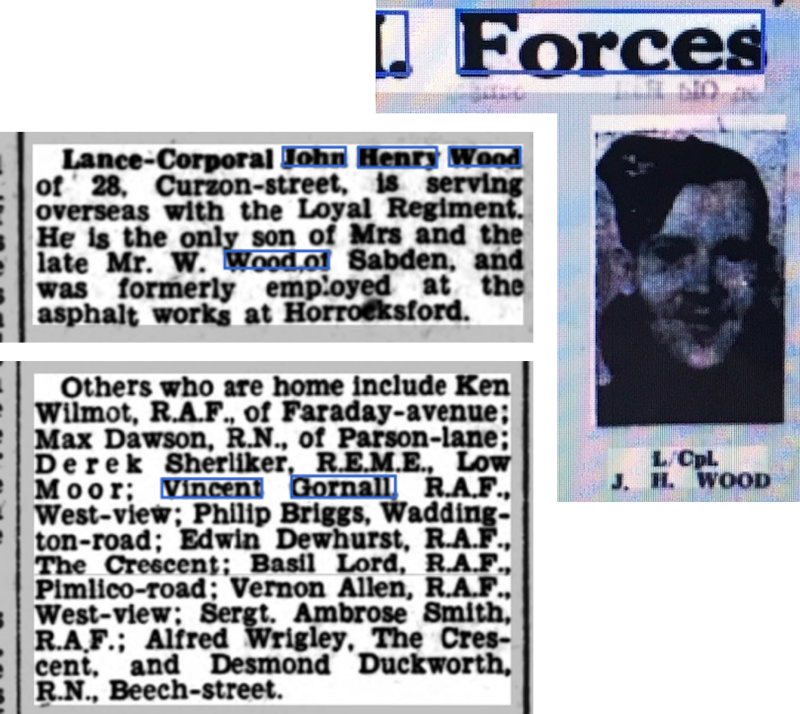

Richard “Dick” Brill, US Army | Emeline Howe, Red Cross Nurse
KT Brill, submitted the following excerpts from a manuscript about her father, Richard “Dick” Brill” written over 40 years ago. The manuscript contains the memoirs of a Red Cross nurse, Emeline Howe, who was a childhood friend. She unexpectedly encountered Dick in a Paris hospital at the end of World War II.
The first excerpt describes the initial meeting of Dick and Emeline in the Parisian hospital. A PDF of the account can be viewed by clicking here.
The second extract offers a personal account of the nurse’s memories of VE Day in Paris.
Dick Brill and the nurse reunited once more in California during the 1980s, while she was working on this book.
At the time Dick Brill received this account, it was still in draft form. As a result, some details may have been revised in the final version. For instance, while Dick Brill did indeed fight in the Battle of the Bulge, his family does not believe he broke his leg or was a prisoner of war. However, he did suffer a back injury that was being treated and continued to trouble him throughout his life.
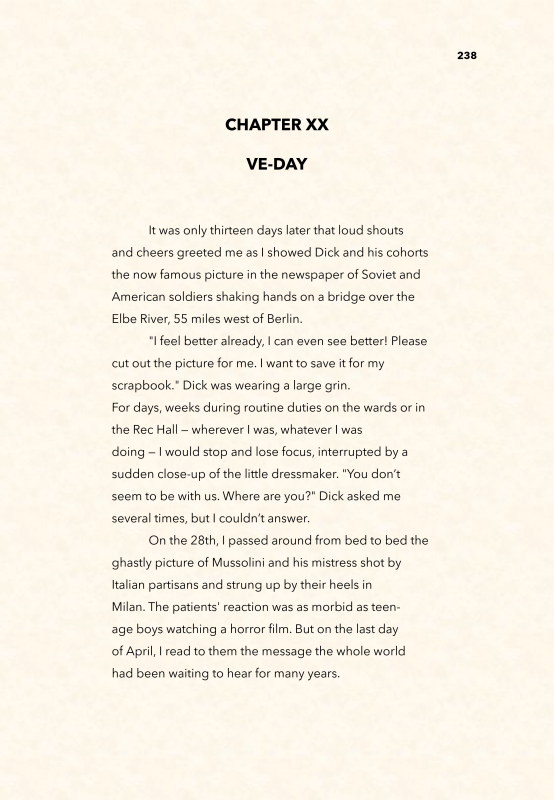

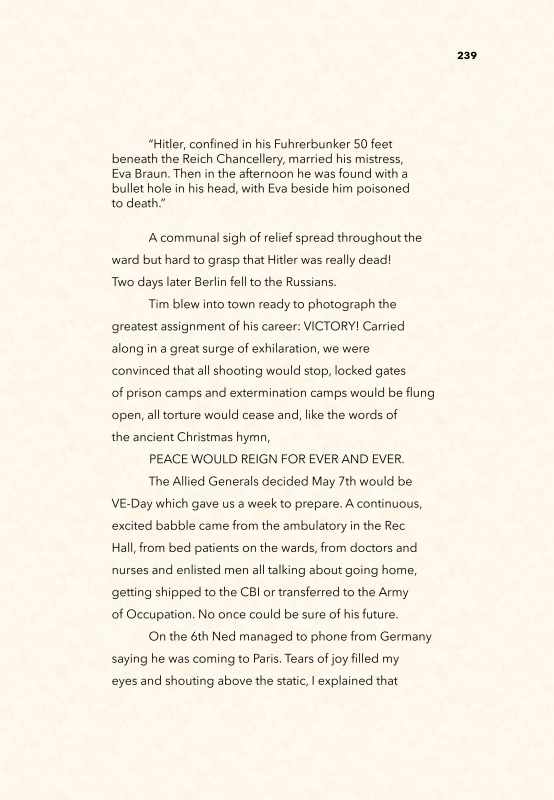

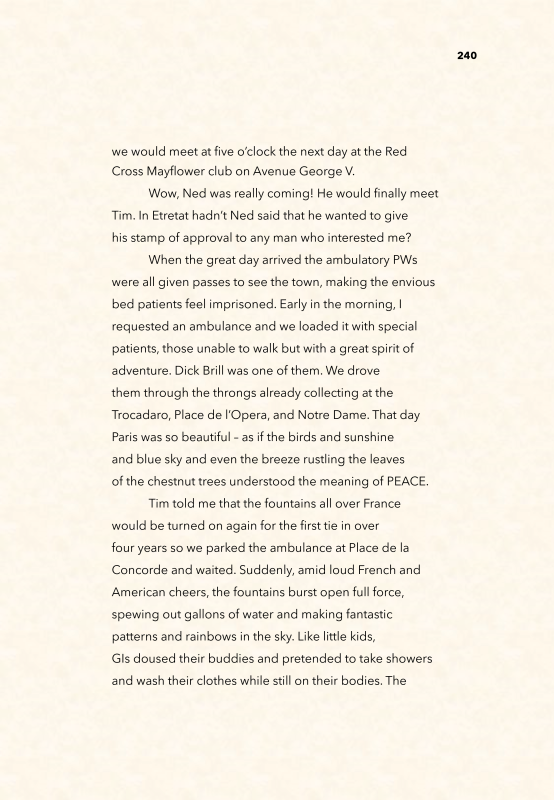

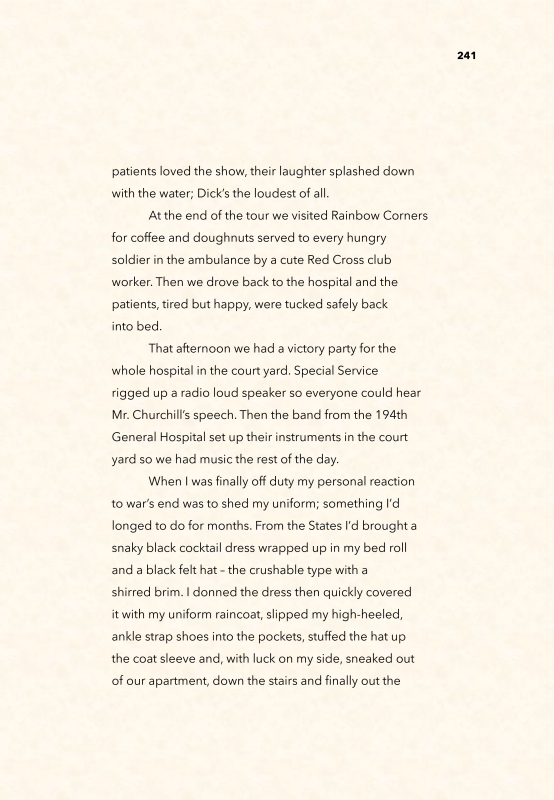

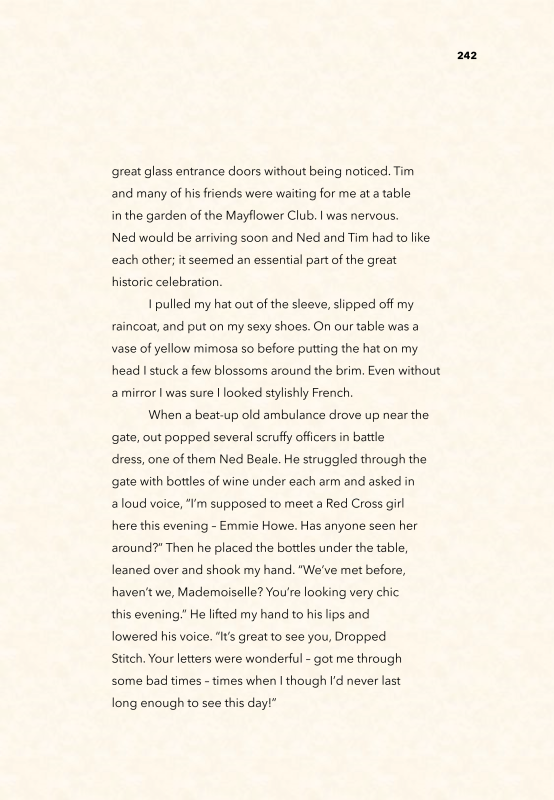

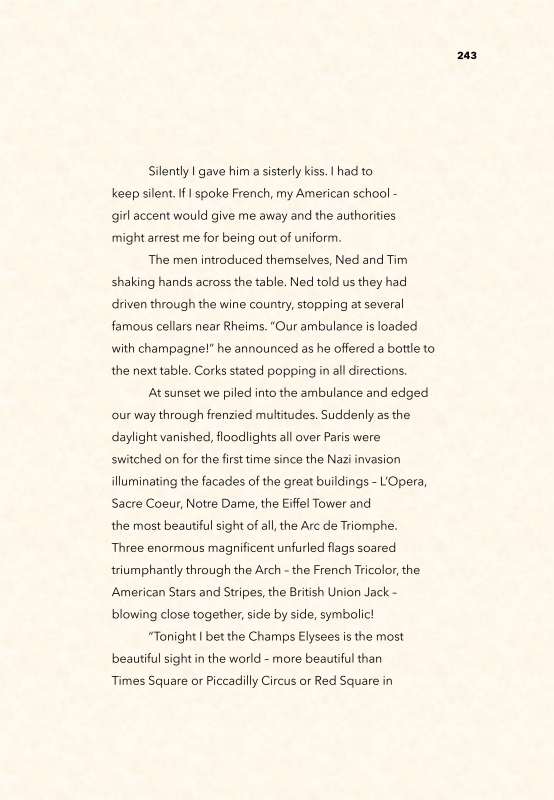

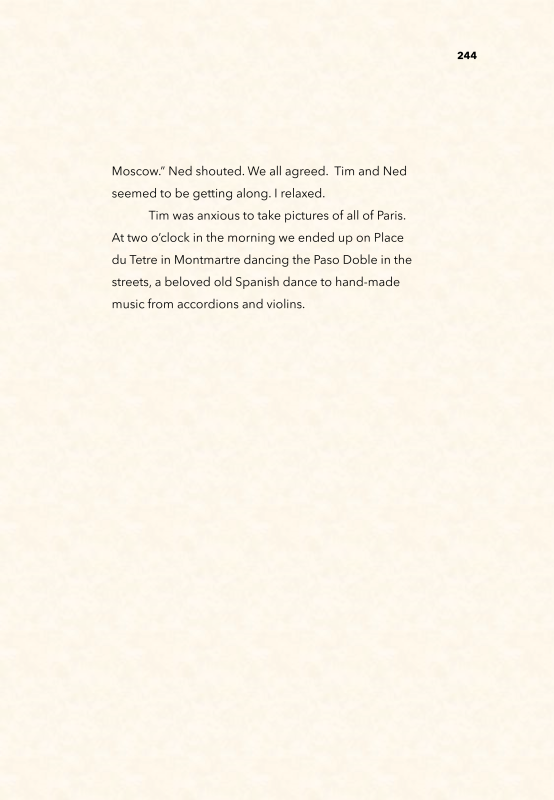

Thanks to KT Brill, for this submission.
Josephine (Jo) E F Lewis, Royal Signals


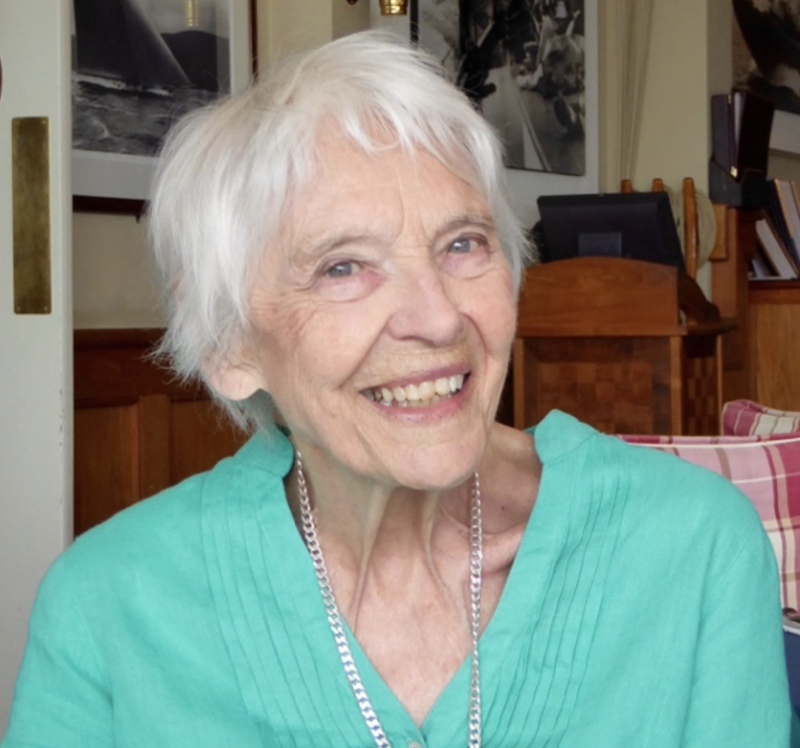

Josephine (Jo) E F Lewis, mother of Loraine McClean, was born in 1926 , enlisting in the Royal Signals in 1944.
In 1945, Jo was a Morse Code operator at the War Office in London (underground, below the Cenotaph). On night of 7th/8th May, she was on duty in the room where important messages came through for Churchill (a flashing lightbulb on a plinth – it’s thought?), and so, Jo literally experienced the arrival of the message of the official end of the war in Europe.
As it happened, Jo was due to go off duty at midnight, but her replacement was late (out dancing with a US soldier!), so Jo stayed on to cover for her. When Jo eventually came off duty, she walked back to her digs through the dark London streets and just wanted to shout at the top of her voice to the sleeping Londoners,
‘It’s over, it’s really over!’
Around the time of VE Day, Jo had just started keeping a diary. Key entries include the following:
- 7th May 1945: ‘Waited by Victoria Memorial saw the Princesses + Prime Minister’
- 8th May 1945: ‘Crowds in streets cheering, etc. Met David, sang + danced in Picadilly with crowds (mad with joy) – Germany Capitulated’.
- 9th May 1945: ‘Not much work. Saw Prime Minister. Had to struggle thru’ crowds to War Office. .. Went out during break … to see buildings lit up – Great fun’.
- 11th May 1945: ‘…to Metropole saw ‘Blythe Spirit’ – very good. Rush to get to work, crowds still celebrating Victory. Terribly busy’ (at work)
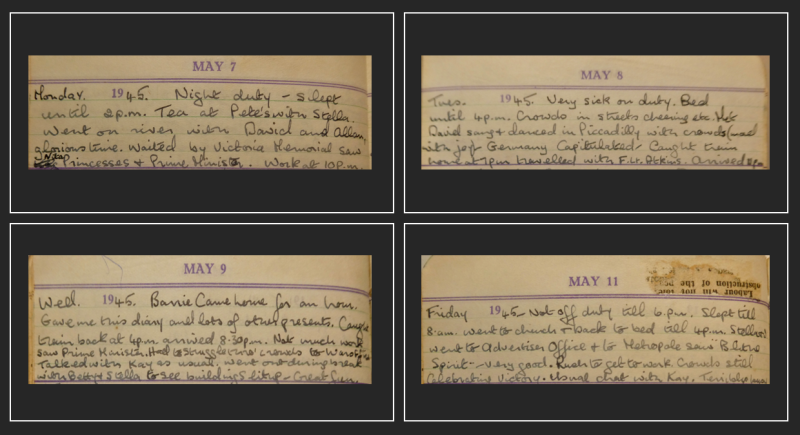

Post-1945, Jo achieved the rank of Sergeant, and was posted to Germany, where she served until 1947. Jo was very proud of her wartime service. All five of her siblings served in WW2, and her older sister was killed during the war.
Her husband also served in Royal Signals. Following D-day he was based in Paris HQ (the Scribe Hotel) sending war news for Reuters, as well as army communications.
Sadly, Jo passed away in April 2020 due to Covid, but these precious memories remain, reflecting her clear and interesting recollections of her time at the War Office.
Thanks to Jo’s daughter, Loraine McClean, for this submission.
Anthony Duno, General George S. Patton’s 3rd Army, 95th Infantry Division
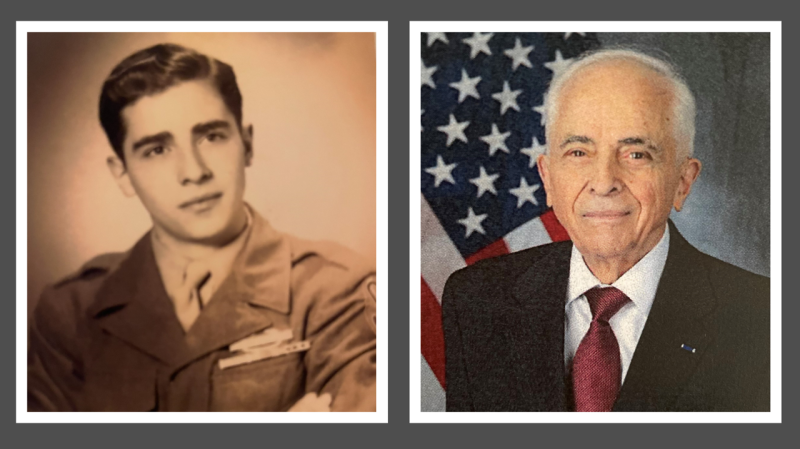

Nancy Broadway shares her father’s WWII experience and recollections of VE Day, along with a copy of an article that he was featured in, specifically regarding his memory of that day.
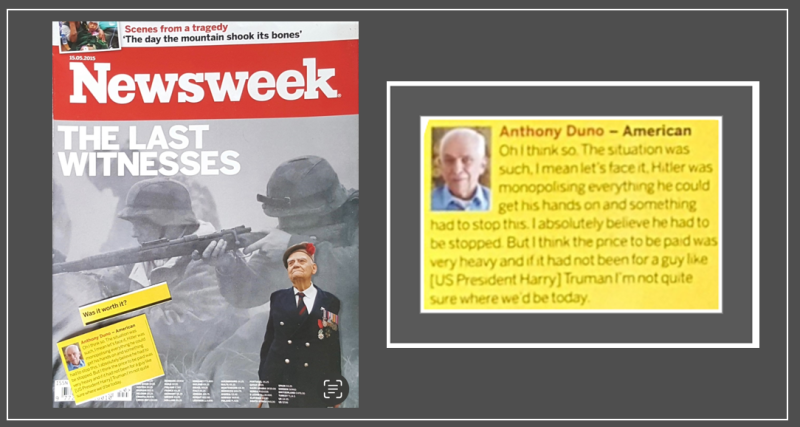

The journalist, Simon Akam, interviewed veterans from several nations (also a British, a French, a German, an Italian, a Russian) involved in the European war front, focusing on their memories of VE Day. My father was the US veteran represented and interviewed. He was in Germany on 8th May 8th 1945, and heard the news that the war was over.
He was “tickled pink” when he heard the news, on low volume from a Jeep radio. As they celebrated the end of combat, the soldiers were informed that the 95th Division was one that was named to be moved to the US to re-equip and prepare for the invasion of Japan.
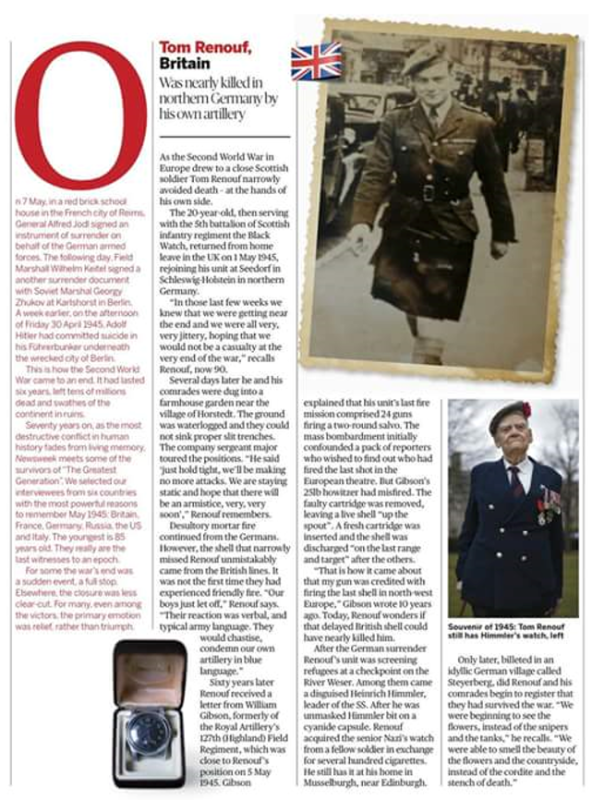

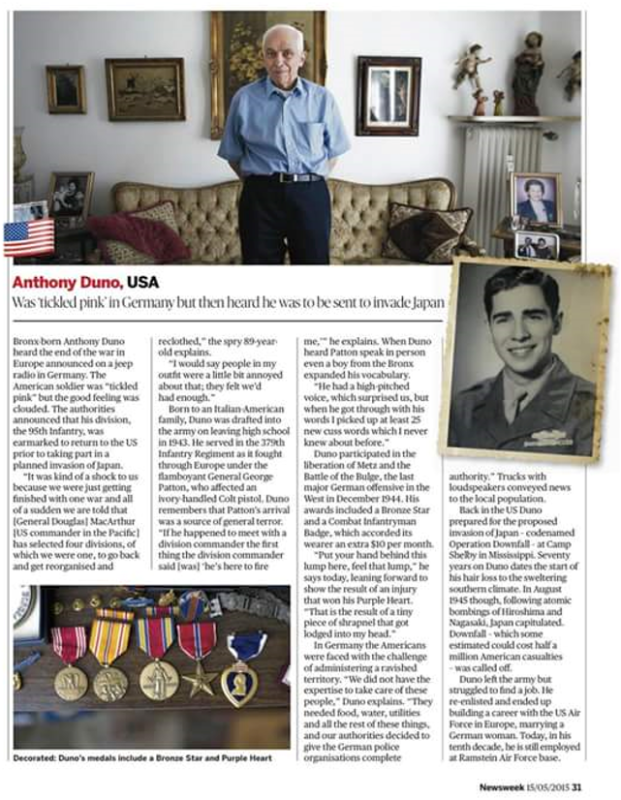

Anthony Duno’s WWII Experience
During World War II, Anthony Duno was in General George S. Patton’s 3rd Army, and fought with the 95th Infantry Division-the “ Iron Men of Metz”. The 95th initially battled through the French region of Lorraine, liberating the Fortress city of Metz, which had not been taken since Attila the Hun; then moving into Germany to liberate Saarlouis in the Saarland; before engaging in the Battle of the Bulge.
His Regiment was part of the 95th Infantry Division chosen to be temporarily separated from the 3rd Army after the Bulge. They were then attached to General Simpson’s 9th Army, in support of the Ruhr Campaign, where they fought alongside the British VIII Corps of the Second British Army as part of Operation GRENADE. This took place preliminarily in Holland near the Maas (Meuse) and Roer River near Boxmeer Holland; with the goal of battling through to cross the Rhine into Germany. The 95th then went on to penetrate the Ruhr pocket and crossed the Rhine River at the Adolf Hitler Bridge into Germany. His Regiment, (Company G, 379th Regiment) liberated a Nazi work camp in Werl, Germany.
During the war, Anthony Duno fought in four of the five major US campaigns in the European Theatre of Operations. He was highly decorated, being a recipient of the Bronze Star Medal for Meritorious Achievement in Ground Operations Against the Enemy; the Purple Heart Medal for Wounds Sustained in Combat; the Combat Infantryman Badge; Victory WWII Medal; European African Middle Eastern Campaign Medal; 1941-1945 EAME Medal with 4 Bronze Stars; Army of Occupation Medal; WWII Honorable Service Pin; Good Conduct Medal; the French Legion of Honor (Chevalier); the Medal of the Order of Lafayette; and the Battle of the Bulge – Liberation of Luxembourg Medal.
During his life-long career after the war, of 70 years serving the United States Government and working alongside NATO allies, he continuously forged strong cooperation amid negotiations with our alliances. He truly enjoyed being able to observe and be a small part of the rebuilding of Europe.
Anthony Duno ensured that his whole family, his children and grand children learned about and remembered this [VE] day each year, even though it is often overlooked by media and others nowadays.
His family were privileged to visit with him, on VE Day and also Memorial Day (the American Remembrance Day), the US cemeteries of Europe one in particular, the cemetery at Lorraine in France which holds the souls of over 10,000 American men who fought and died for the freedom of Europe- or, as he would say, ‘the freedom of the world’; many of them his fellow brothers in arms who gave their lives in the campaigns he fought alongside with them.
Anthony Duno, who was a member of the VSC, sadly passed away in 2020 at the age of 95. He is buried at Arlington National Cemetery.
Thanks to Anthony Duno’s daughter, Nancy Broadway, for this submission.
Corporal John Westlake, 2nd TAF, RAF
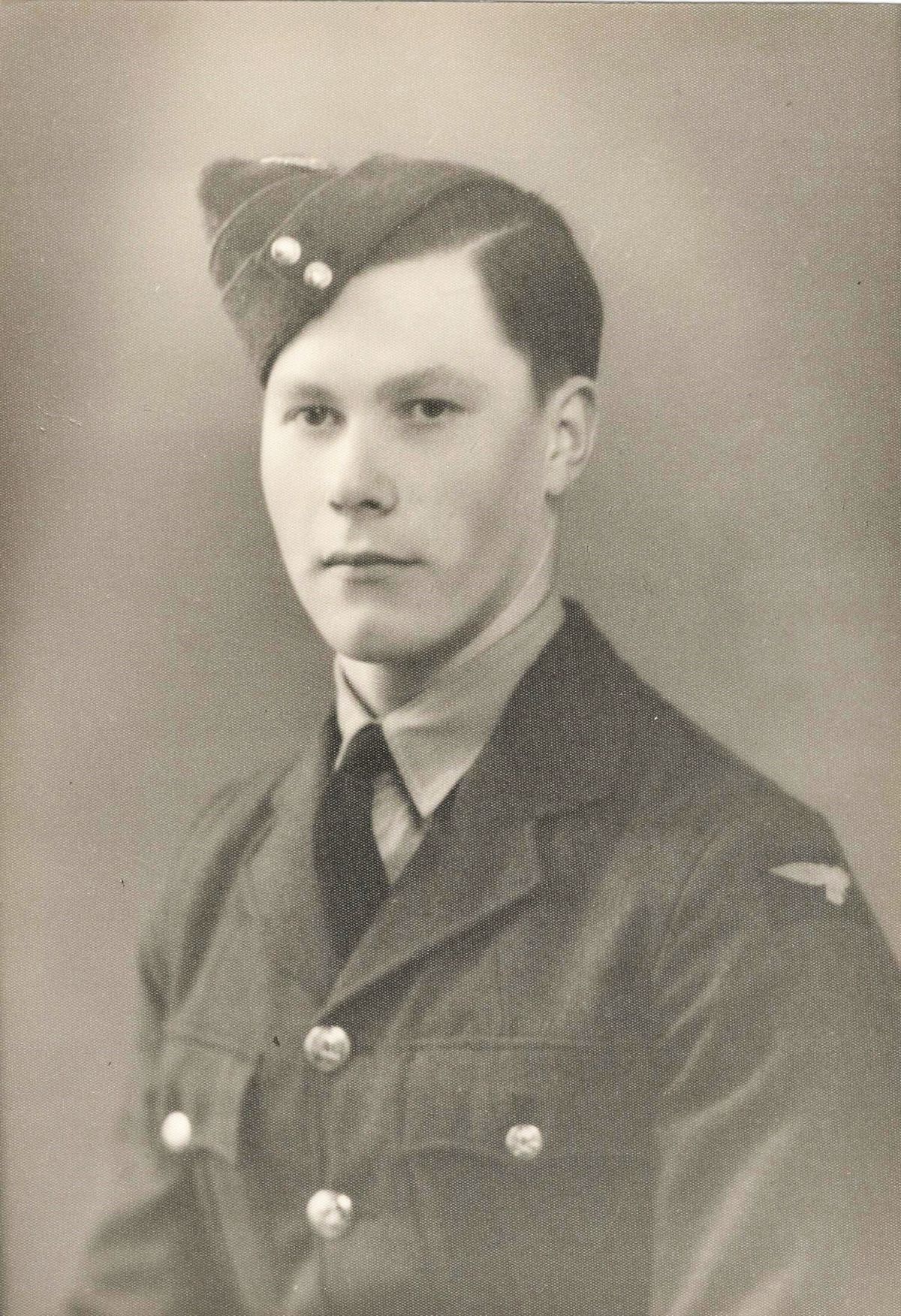

c.August 1942 having volunteered on his 18th birthday
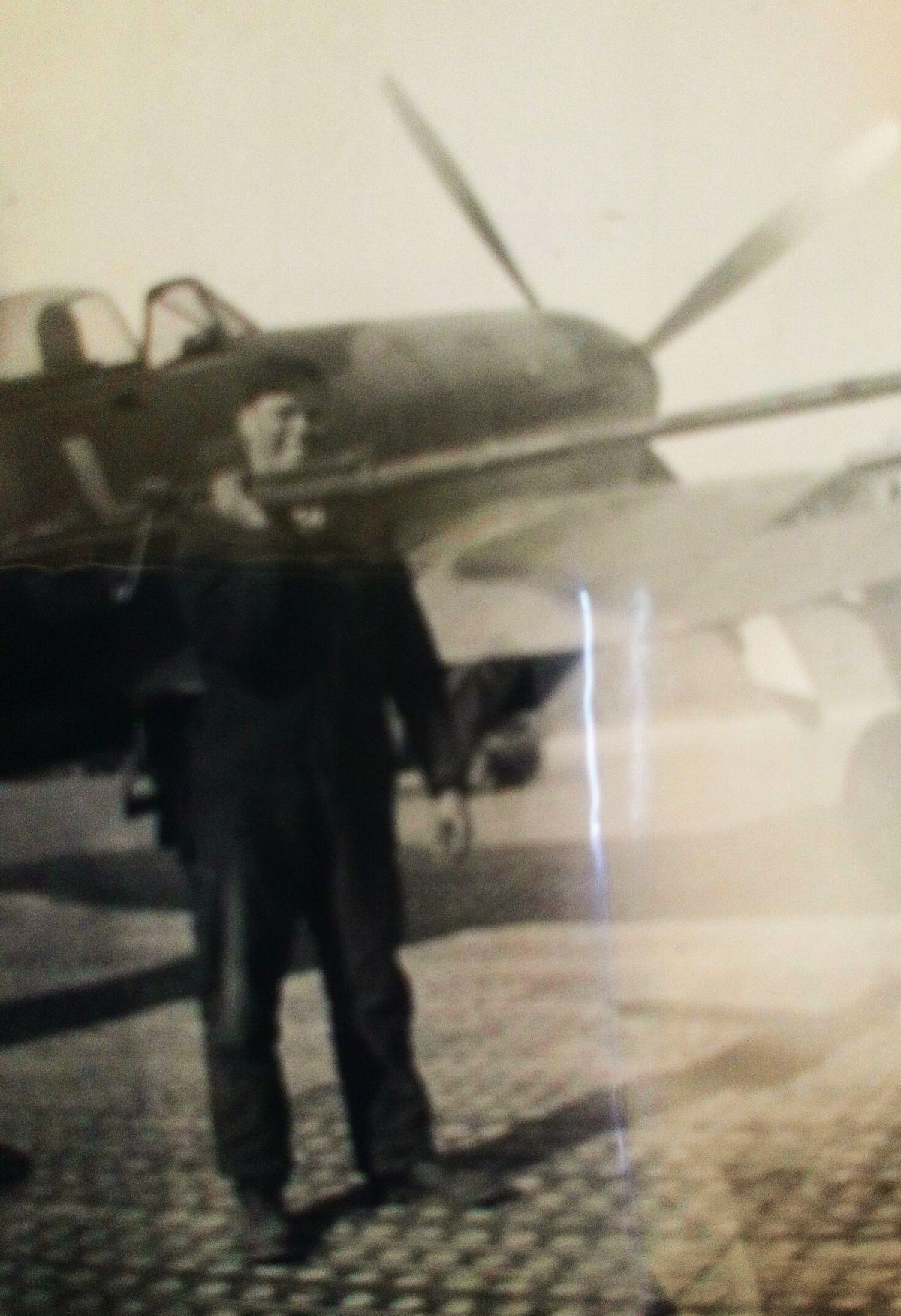

Ver sur Mer, B2 Airfield
Corporal John Westlake was a Fitter/Armourer, serving in the RAF – with the 2nd TAF. At just 18 years old, on the first Saturday after his 18th birthday, armed with his birth certificate as proof of age, John received his papers for the RAF.
During the war, John landed on Juno Beach and supported the Typhoons across Europe. The photo [above right], is taken at Ver sur Mer, B2 airfield. Here, he was carrying the Hispano missile to be loaded onto a Typhoon, the feared ‘Tank Busters’ of the Normandy landings and the epitome of close support in Europe those ten months. After being based at Ver sur Mer, he travelled through the Falaise Gap, onto Antwerp and Arnhem then crossing the Rhine, and finally arriving in Berlin.
As a young man, John always felt it was his duty to defend his country. He joined the Home Guard the first day the request for LDVs [Local Defence Volunteers] was announced on the radio. Despite being under the official joining up age of 16, he was accepted. Throughout his life, John recounted to his family, some wonderful tales of his Home Guard days and nights in and around Sidcup, London. He took part in fire watch on the MacMillian building roof where he worked. When an incendiary bomb landed on the adjacent roof, he took it home, keeping it under his bed (!!!) and later buried it in the garden.
At the time of victory, John recalled that while stationed at an airfield near Lingen, operations had gradually slowed in the final weeks leading up to the end of the war. Anticipation was high that they were close to the end.
On the day that Victory in Europe was declared, each man was given a large ration of rum in their tin tea mugs, and having been without any alcohol for such a long time, this soon took effect on the exhausted young men, who fell asleep on the grass of the airfield. They were awoken by the dew soaking their clothes in the early hours, as the chill of dawn seeped through them. To warm themselves the following morning, they set fire to one of the German wooden accommodation huts, drying their clothes and warming up.
Within a few days, all the airmen were invited by the people of The Hague to visit. Uniforms smartened up, they formed up for a Victory March through The Hague before, being stood down for free time and being invited by locals to their homes.
John, with a few of his close chums, were enjoying this hospitality when suddenly the door of the flat burst open and the Police arrived, brandishing pistols and shouting. It transpired that a neighbour reported that the tenants were entertaining Germans soldiers! The blue of the RAF uniforms had been mistaken for the German field grey. After a few moments of confusion, laughter erupted and a good afternoon was had by all who were now enjoying the new freedoms and victory.
In 2018, John was awarded the Legion d’Honneur in recognition of his part in the liberation of France and the following year, the ‘Thank You Liberators’ medal from the people of the Netherlands. He achieved his 100th birthday in July 2024, but sadly John died just a few months later in the following October.
Thanks to John’s daughter, Rita Westlake, for this contribution.
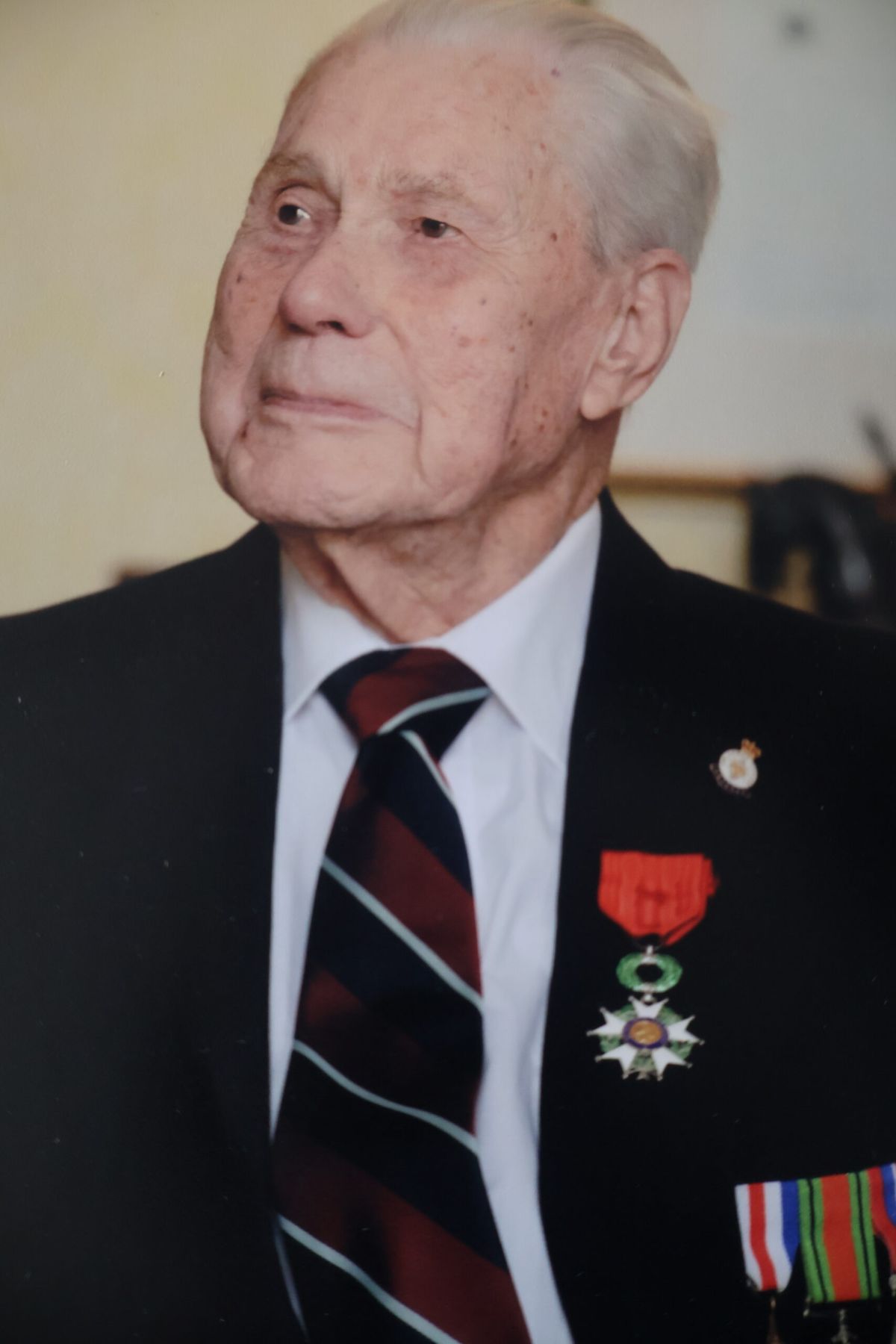

Moments after receiving the Legion d’Honneur in 2018
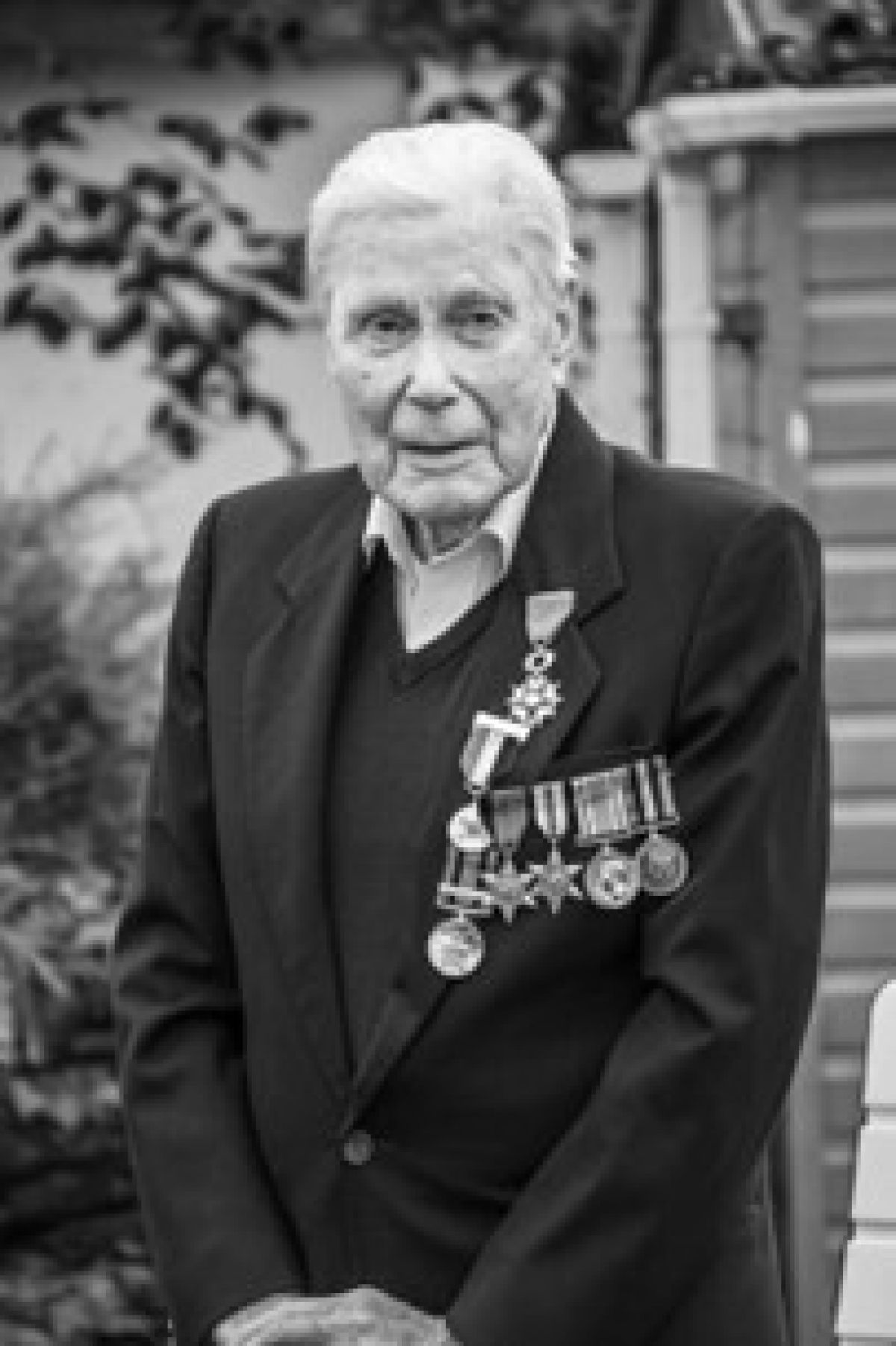

Shortly after presentation of the ‘Thank you Liberators’ medal from the people of the Netherlands in 2019
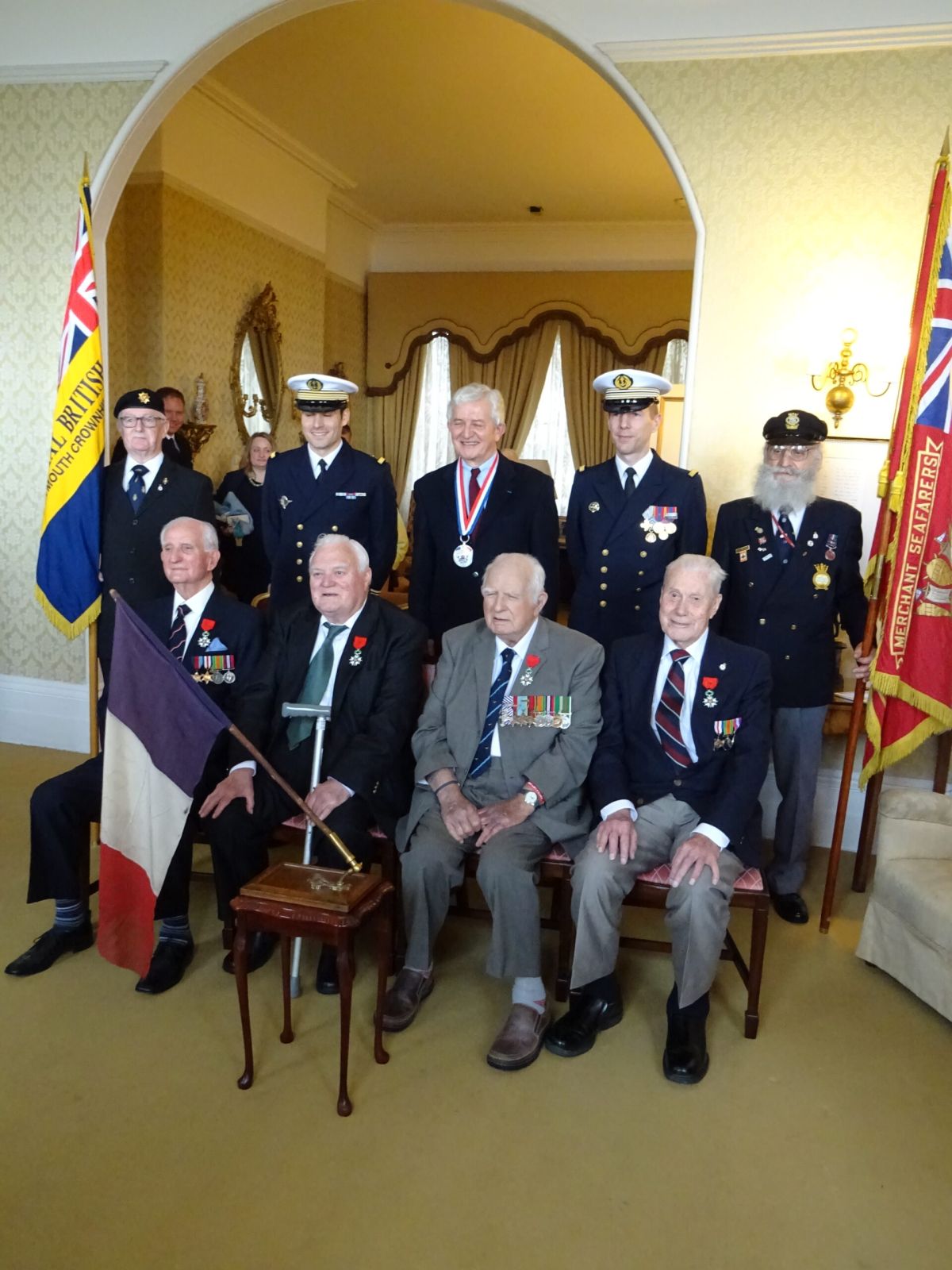

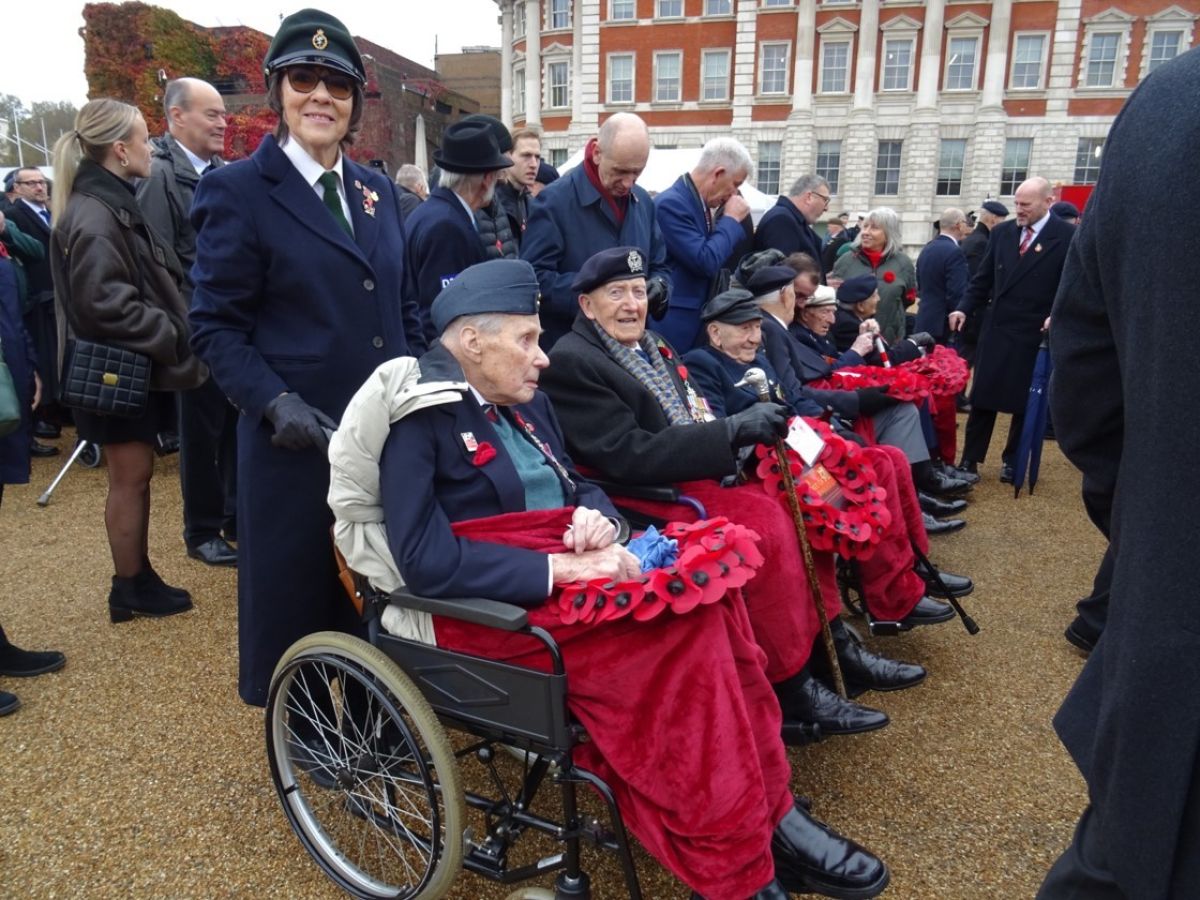

With daughter Rita, awaiting the muster at the Cenotaph 2023
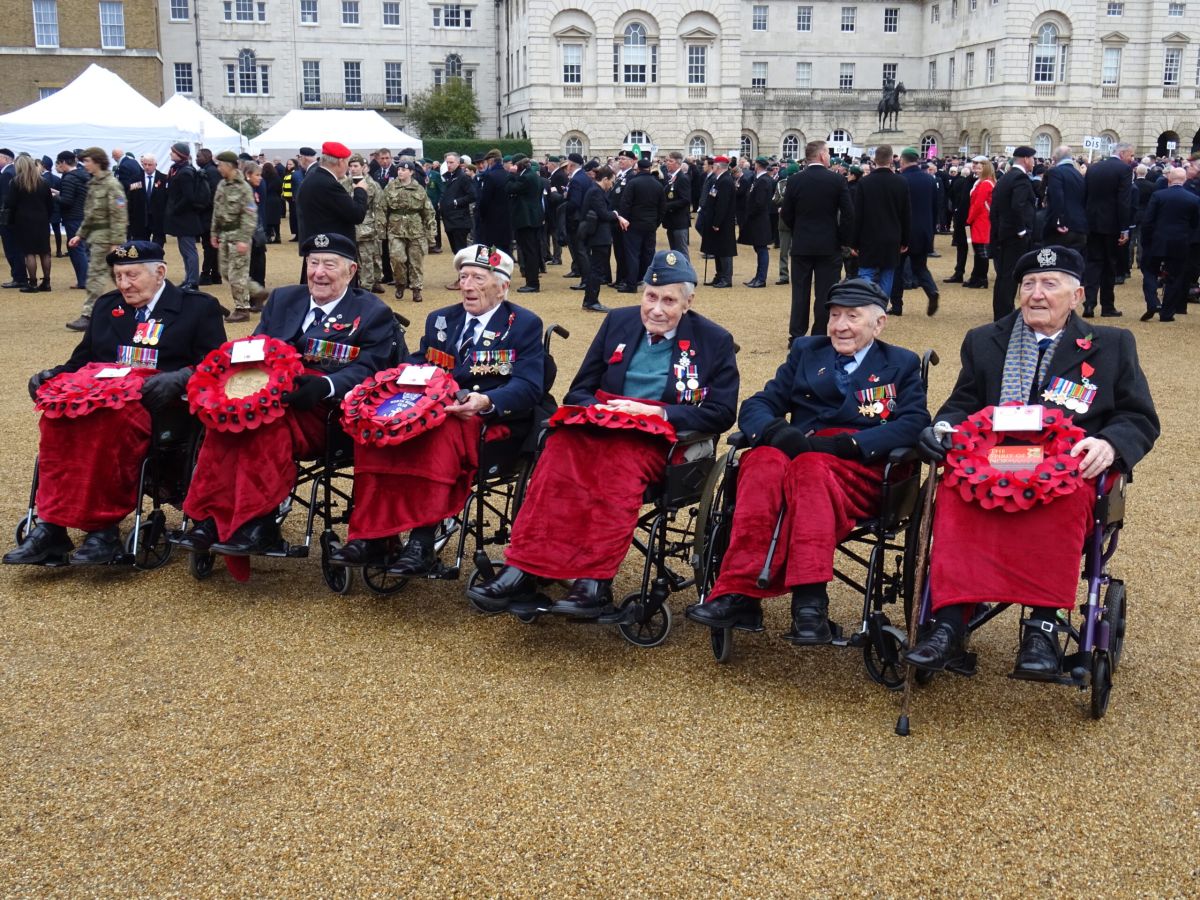

Sharing the moment with Spirit of Normandy Trust veterans
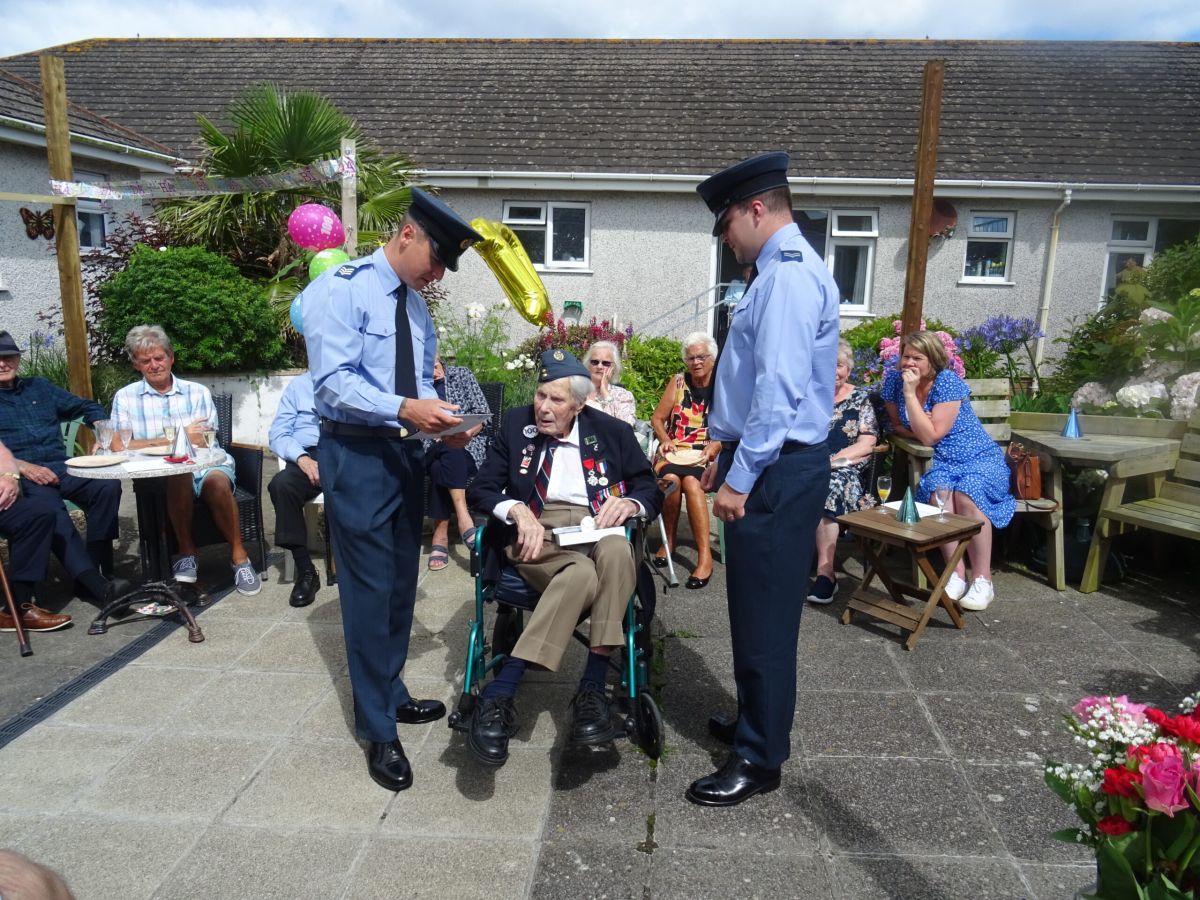

Centenary birthday celebrations
John Henry Oakley MC, 4th Recce Regt
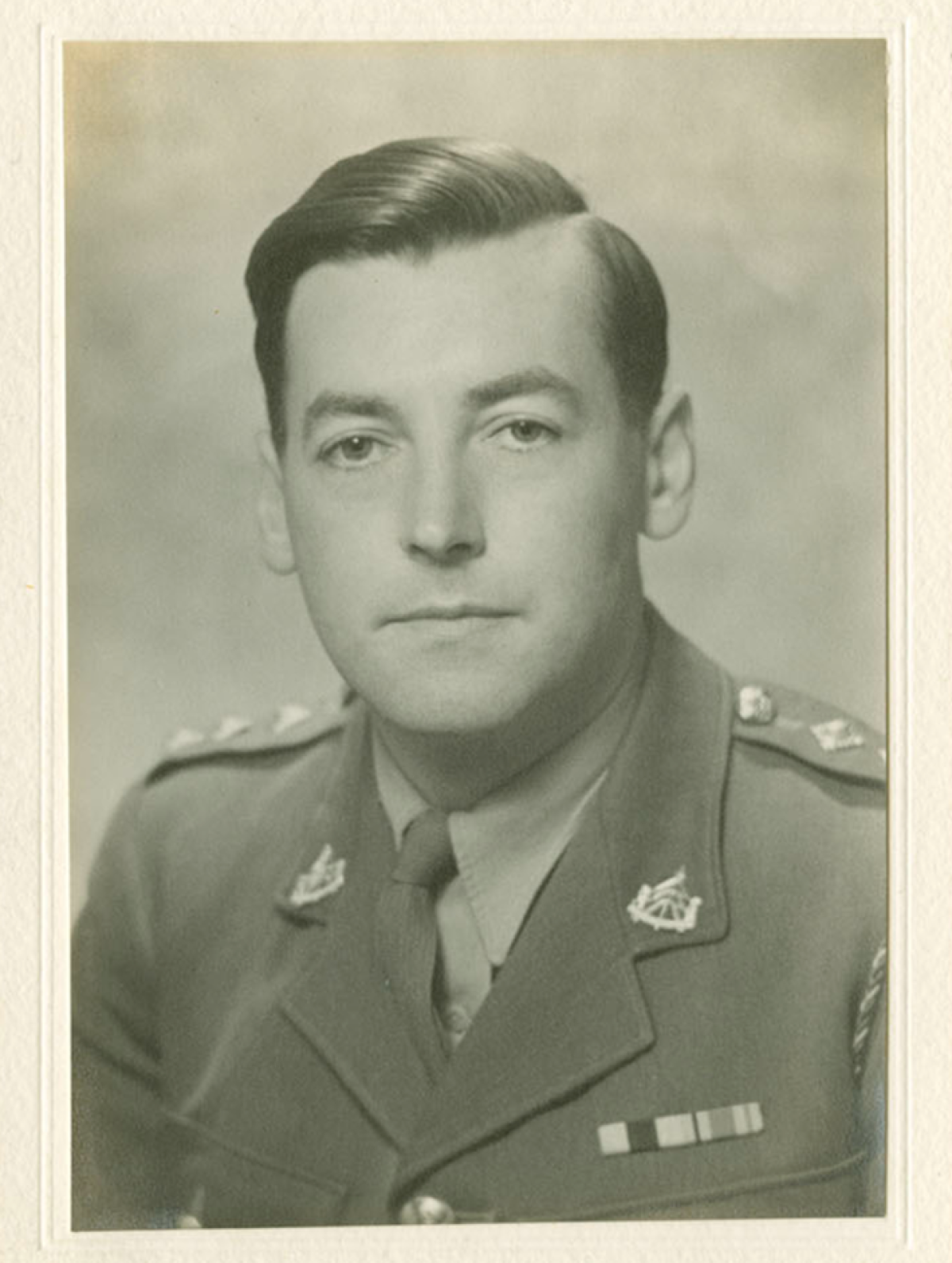

The father of Kathleen Sharma (nee Oakley), John Henry Oakley MC (1918-2004), was in the Recce Corps (the Fourth Reconnaissance Regiment). His mother (La) wrote to him twice weekly during the many years he was posted abroad.
Whilst John was fighting on the front line for years, back at home in SE London life was hard. There were the usual wartime family dramas, queueing for hours for rations and the house was hit by a flying bomb.
His daughter, Kathleen, has published a selection of her letters in 2021: “Yours, La. Wartime letters from a mother to her son 1943-1945. Below are a couple of letters relating to VE Day in London, as well as a letter from John describing his regiment celebrating VE Day in Greece.
Thanks to John’s daughter, Kathleen Sharma, for this contribution.From John Henry Oakley to his mother, 4th Recce Regt in Greece, 11th May 1945
Dear La,
Prepare yourself for the biggest shock of your lifetime – I am coming home for a month’s leave. It will probably take anything up to a month before I arrive because I believe we have to go to Italy first, but what matters such a trifle? You cannot imagine what a thrill this was to me. We were in the mess feeling pretty low after our terrific parties during the ‘V.E.’ days when the adjutant came in and said there was an officer vacancy for ‘Liap’ as this type of leave is called. The colonel decided that lots would be drawn only among those officers that came abroad originally with the Regiment; there were fourteen. Imagine the expectant hush as the Colonel dipped his hand into the hat. At least six of the officers concerned were present and in a state of tense excitement. The Colonel opened the slip of paper and said ‘John’. I nearly fell through the floor, believe me. However, it was true and all being well I shall see you all in a few weeks from now.
This has been a truly wonderful week. I was so glad to hear about Mavis’s (John’s sister) baby arriving safely and to know that they are both well. Please thank her very much for her letter and give her my heartfelt congratulations. I am longing to see the children and indeed all of you. The long-awaited victory as well; we thought it might be rather a flop after all this time but our celebrations were a tremendous success. No one was hurt which was the main thing since no limits were imposed on what might be done except for taking out vehicles. It was surprising that no one was injured considering the revelry. I had my head cut with a glass, but I hardly noticed it at the time! It has healed now. Our amusements consisted mainly, as you may have guessed, in getting ‘tipsy’, with one or two comic football matches between officers and sergeants to fill in the gaps.
May 6th was also a cause of minor celebration, it being the anniversary of the final North African battle. It reminded me of that dreadful morning and how lucky I had been to escape so lightly (John was wounded in an ambush in Tunisia in which comrades died) What a lot has happened since then too. This time last year Cassino fell and we were marching back from that appalling railway station, quite the most squalid and depressing place I have ever had to occupy. However, it is all over now for me, or at least I suppose so.
I shall write again en route I expect so cheerio for now.
With best love to all, John
From Mrs Vere Oakley (La) of Beaconsfield Road, London SE3 to her son, John, 6th May 1945
My Dearest,
You may have gathered from my scribble on the back of my last letter that your niece has arrived. A really pretty little girl, dark, weighing 9lbs, named Janet Mary. Mavis is getting on very well indeed. The labour was hard but quick. She woke me at 3 a.m. I got nurse and doctor here in good time and spent the time in the sitter with John*until 6.45, a very weary business. Dad went off to Cookham in the afternoon and returned yesterday.
Frankly, John, I am quite done up; it is a stiff job, looking after Alan (15 months old), cooking, running up and down, helping with the babe (the nurse only visits once a day), and endeavouring to do the shopping and tidying, trying to keep the house clean as well. Possibly had one been in better fettle to start with, it would not have seemed such a heavy job, but rockets, flying bombs and, almost worst of all, cleaning a bombed house partially of debris, has rather taken the stuffing out! Well, I shall get over it probably, but one does not expect to have two youngsters to deal with at my age and Alan, although pretty good, is quite naturally a handful by himself. Anyhow, I have seen Mavis through her difficulty, or almost, and that after all is the main thing. What an awful grouse, but I can’t express it to anyone else at all!
Well, one supposes the war is over to all intents and purposes. Now the fun starts, quarrels and quibbles at Frisco is just the beginning. These VE Days [Victory in Europe Days] notions leave me very cold. I suppose there will be a lot of speeches from all and sundry. I shall just thank God the whole thing is over and be grateful that, barring dirty Greeks, you will be all right. This is a stupid letter John dear, but am rather woolly-headed just now.
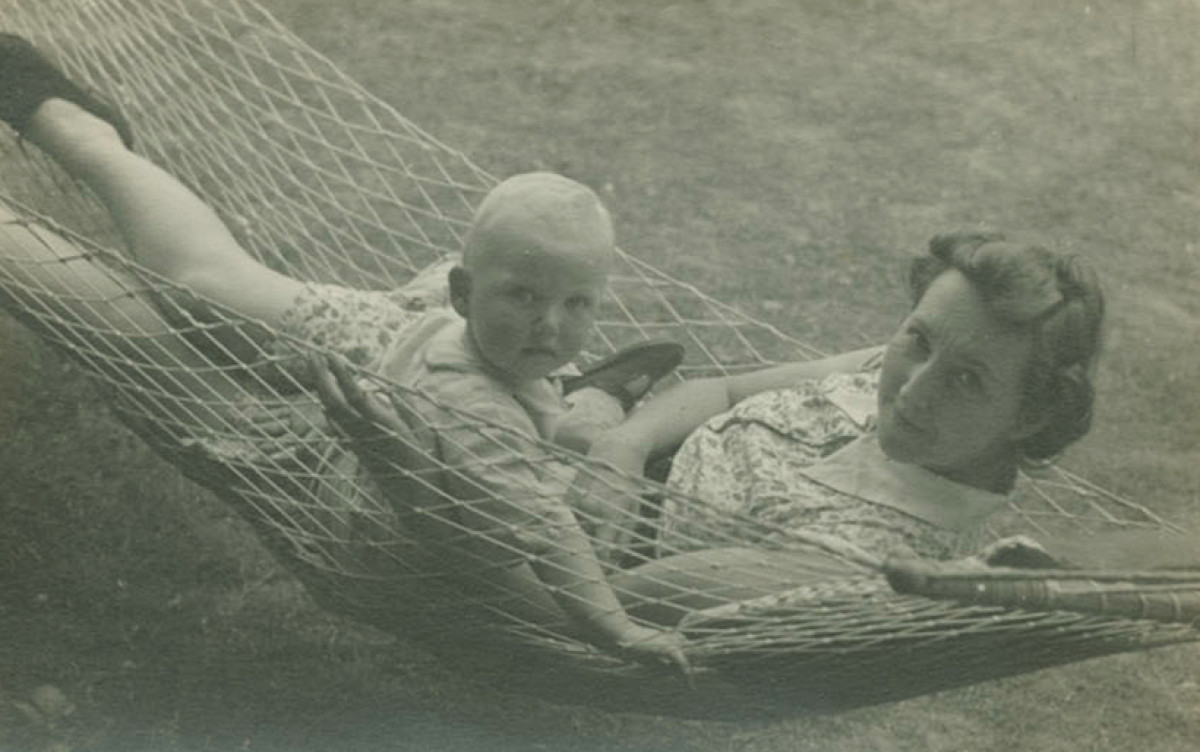

*Mavis is one of John’s sisters. She, her infant son Alan (in hammock below) and husband John Wysman (wounded at Dunkirk) were unable to find accommodation so moved into the bomb damaged 36 Beaconsfield Road with Vere and La Oakley.
From Mrs Vere Oakley (La) of Beaconsfield Road, London SE3 to her son, John, 11th May 1945
My dearest,
……I suppose that by now you have recovered from the VE celebrations. Apparently, London went quite mad. We could see the bonfires in all directions from here, it looked almost like the old Blitz days. Dad and John (Wysman) had two days off, and Dad and I went into Colyers (neighbours) on the first evening and had quite a cheerful time, only a few friends and the boys, but it was good fun, we ended up on the roof where we had a good view of the fireworks and bonfires. Curiously enough, no one seemed to have thought that a few bands in town would have been a good idea or even broadcast music. I expect the crowds would’ve enjoyed it.
Well, thank God that nasty bit of war is over, but it seems awfully difficult to realise it, and the Pacific business must have made any celebrations difficult for many people. I feel it very much that you people who have done so much as well should be stuffed away to watch a lot of lousy Greeks. One would think that some of the mass of troops who have not seen the service that you have, could have done this policing job adequately enough.
Sorry to sound so depressed. It will pass, as everything does sooner or later.
All my love. Yours, La.
Kenneth G. Maslen, 246 Squadron ASR Unit, 2nd Class Coxswain
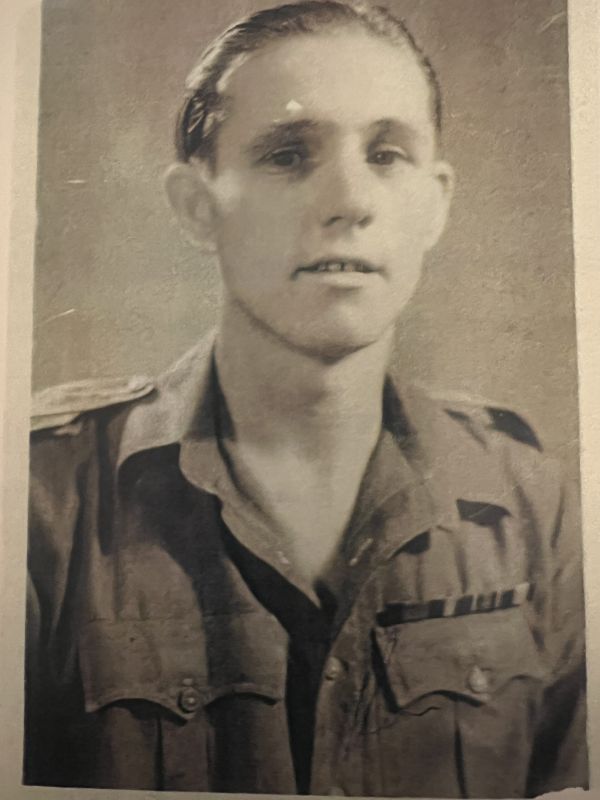

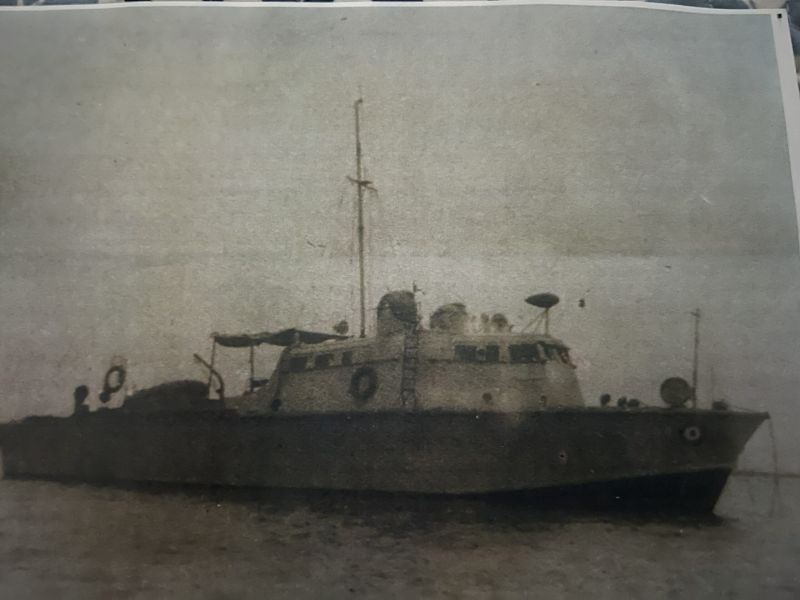

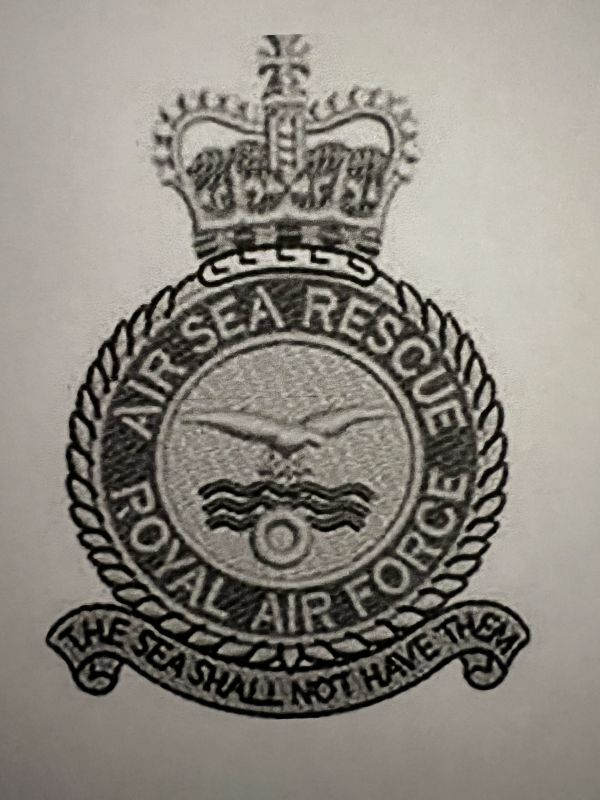

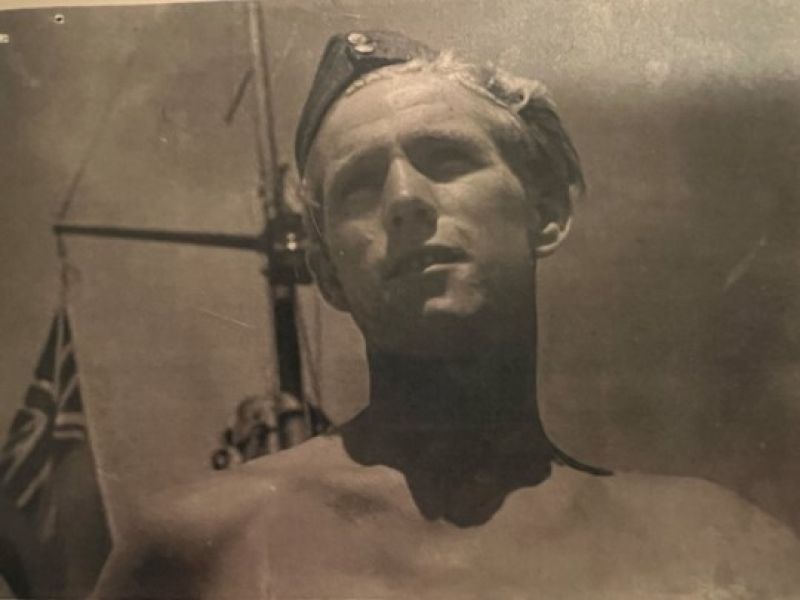

“On VE Day we were back in Kayts, on the north tip of Ceylon. We spent many hours in the Bay of Bengal, travelling from Madres to Calcutta. At that time, we operated a Hants and Dorset Boat Type 3, 68 ft. HSL. Thankfully, we seldom needed to man our guns. On VE Day our main job was to find POW’s on the Islands in the Malacca Straits and South China Sea. We found many ‘thankful men’. As an independent Unit, we had to celebrate Victory by ourselves.”
Thanks to Mary Storry, daughter of Kenneth G. Maslen, for this submission.
Flight Officer Frederic D. Manget, US Air Corps
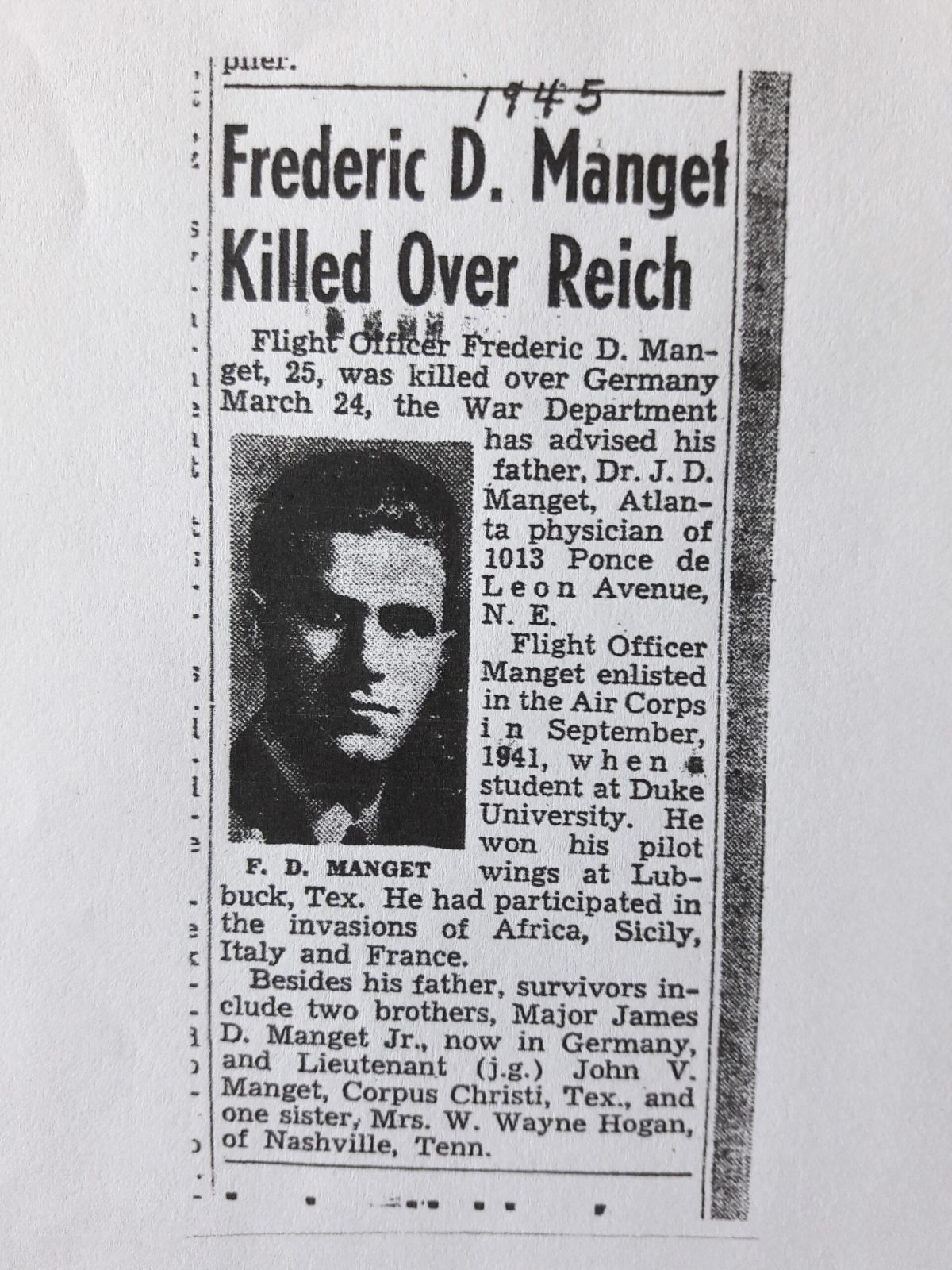

News clipping reporting the death of Flight Officer Frederic D. Manget
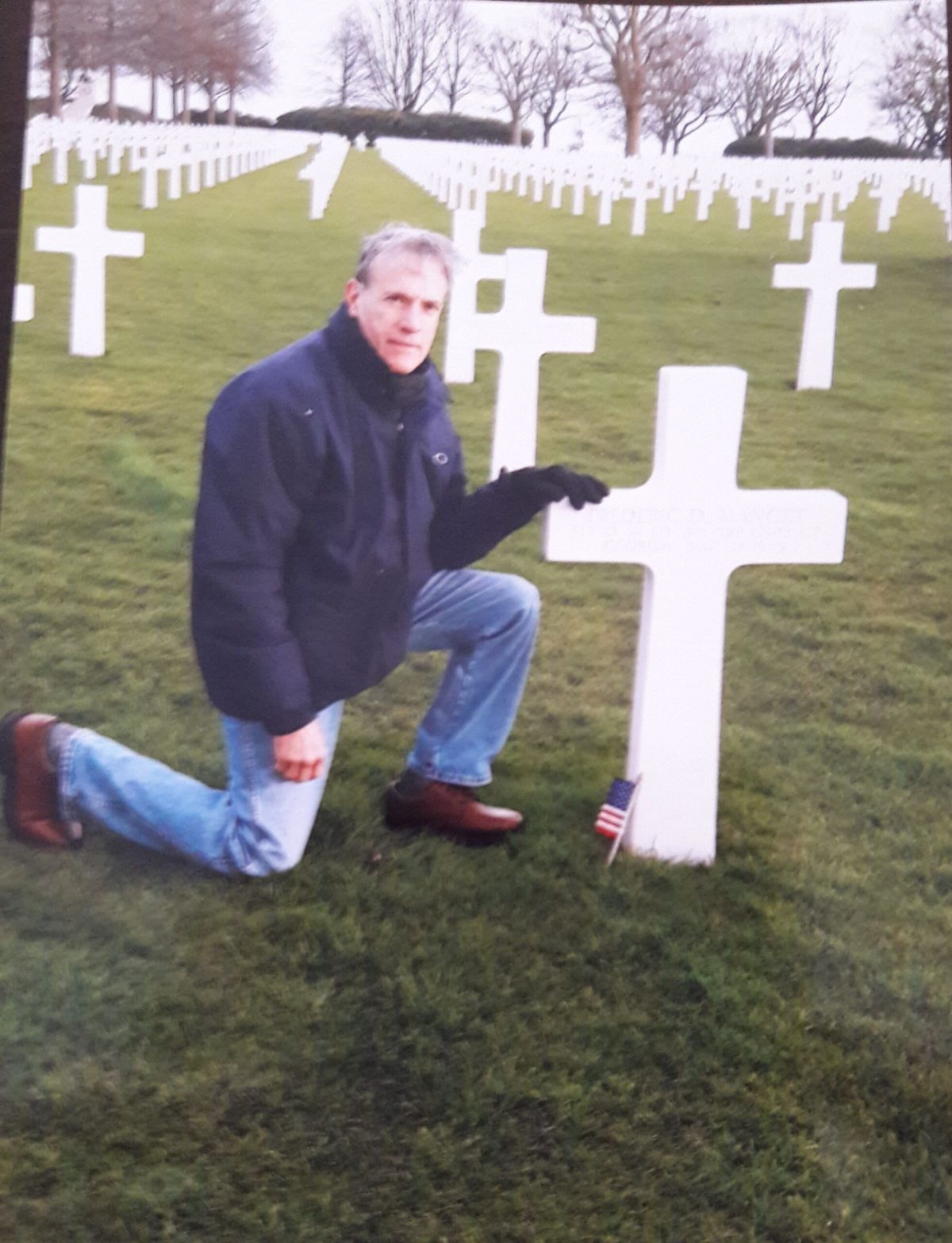

Frederic Manget, COL (Ret’d), US Army visiting his namesake’s place of rest.
Flight Officer Frederic D. Manget, at just 25 years of age, was killed on 24th March 1945 during Operation VARSITY (the crossing of the Rhine).
He rests quietly at peace, alongside his fellow soldiers, in the Netherlands American Cemetery in Margraten, 10km from Maastricht. The cemetery contains more than 8,300 graves. It also has a Wall of the Missing that lists over 1,700 names of soldiers, who were missing in action. This remains a poignant testimony to all the comrades in arms who made VE Day possible.
Thanks to Frederic Manget, COL (Ret’d), United States Army, who was named in honour of his father’s cousin, Flight Officer Frederic D. Manget
Parents of Adrian Wilson-Smith
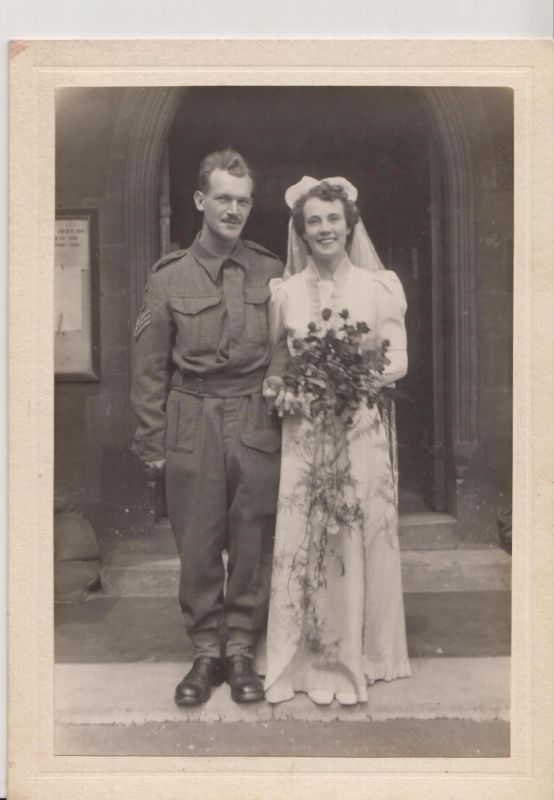

Parents of Adrian Wilson-Smith – photo is of my parent’s marriage in 1942. My mother made her wedding dress out of six separate pieces of dresses or material.
My mother was a motorbike dispatch rider for the War Office throughout the war, ferrying documents around the various offices scattered around London, including too and from Churchill’s HQ in Whitehall. She of course was jubilant at the news of VE Day and looking forward to my father returning soon.
My father was a welder, who volunteered and joined the army in 1939. He spent 7 days and nights on Dunkirk beach before being evacuated. He met my mother on leave in 1942, and got married later that year. He asked my mother to wait until he had been commissioned in order to wear his officer’s uniform at the wedding, but my mother refused, wanting to take advantage of a week’s honeymoon in his Staff Sergeant’s uniform, rather than the standard 24 hours normally allowed for a wedding.
He joined REME when it was set up, and was assigned to accompany the US 39th Infantry in the initial landings at Omaha (Bloody Omaha). He fought through Europe to Berlin, promoted eventually to Major but was then asked to stay on to organise logistics in the devastation of Berlin for a further year without leave.
It devastated both my parents, but on his eventual return to the UK following decommissioning in late 1946, the local community organised a VE Day for both mum and dad. Unfortunately, there were none taken that I know about the ‘’VE Day’’ day that the local community organised for them to enable them to be able to celebrate it themselves. It made up for that lost year and was always something they were deeply grateful for. It speaks a lot for that post war era.
The Relief of Brussels
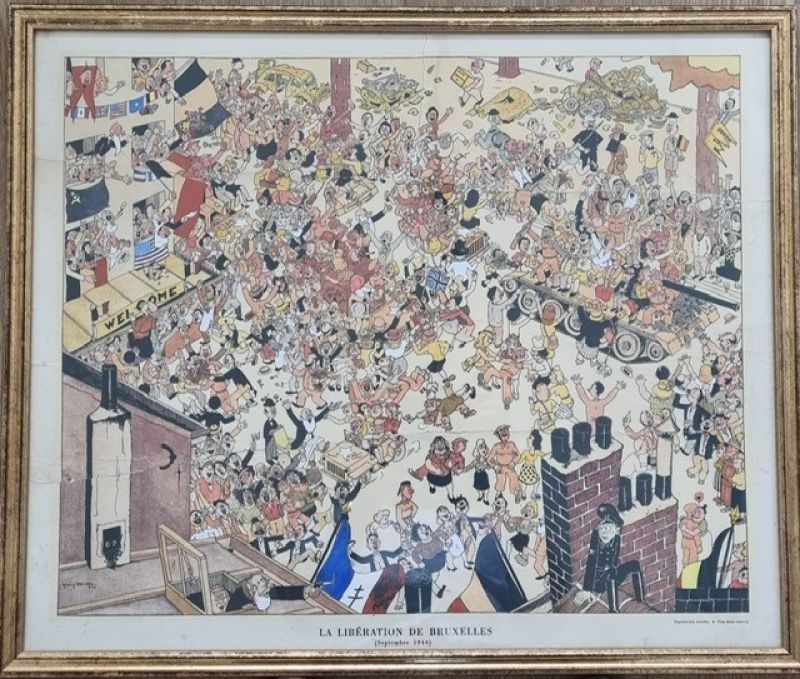

The father of Bryan J W Issac, was a Padre at the relief of Belsen and is quoted in a report as supporting a Padre memo of what Belsen was like at the relief.
However, on his travels he met various people and one was responsible a remarkable cartoon as shown above, which has been framed by Bryan’s son. The colour in the original is a little brighter than this copy, but it is full of fun.
Thanks to Bryan J W Issac for this image
Poem to Commemorate VE Day 80
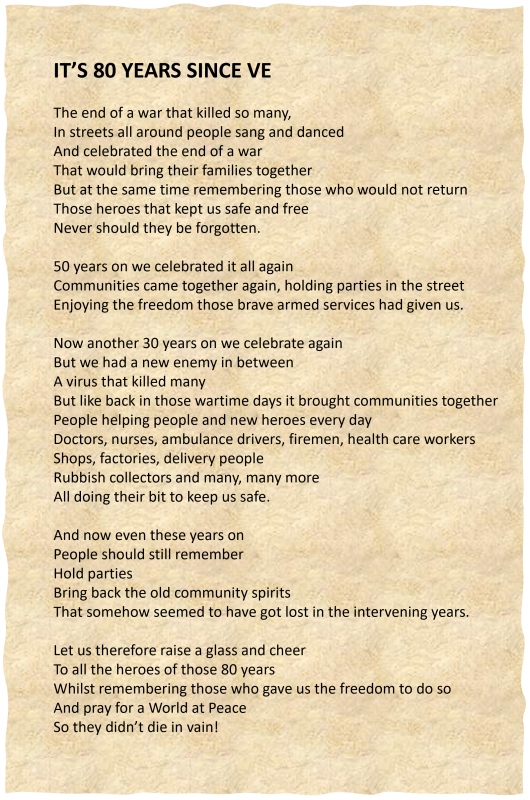

This poem was submitted by Judith Kerslake.
